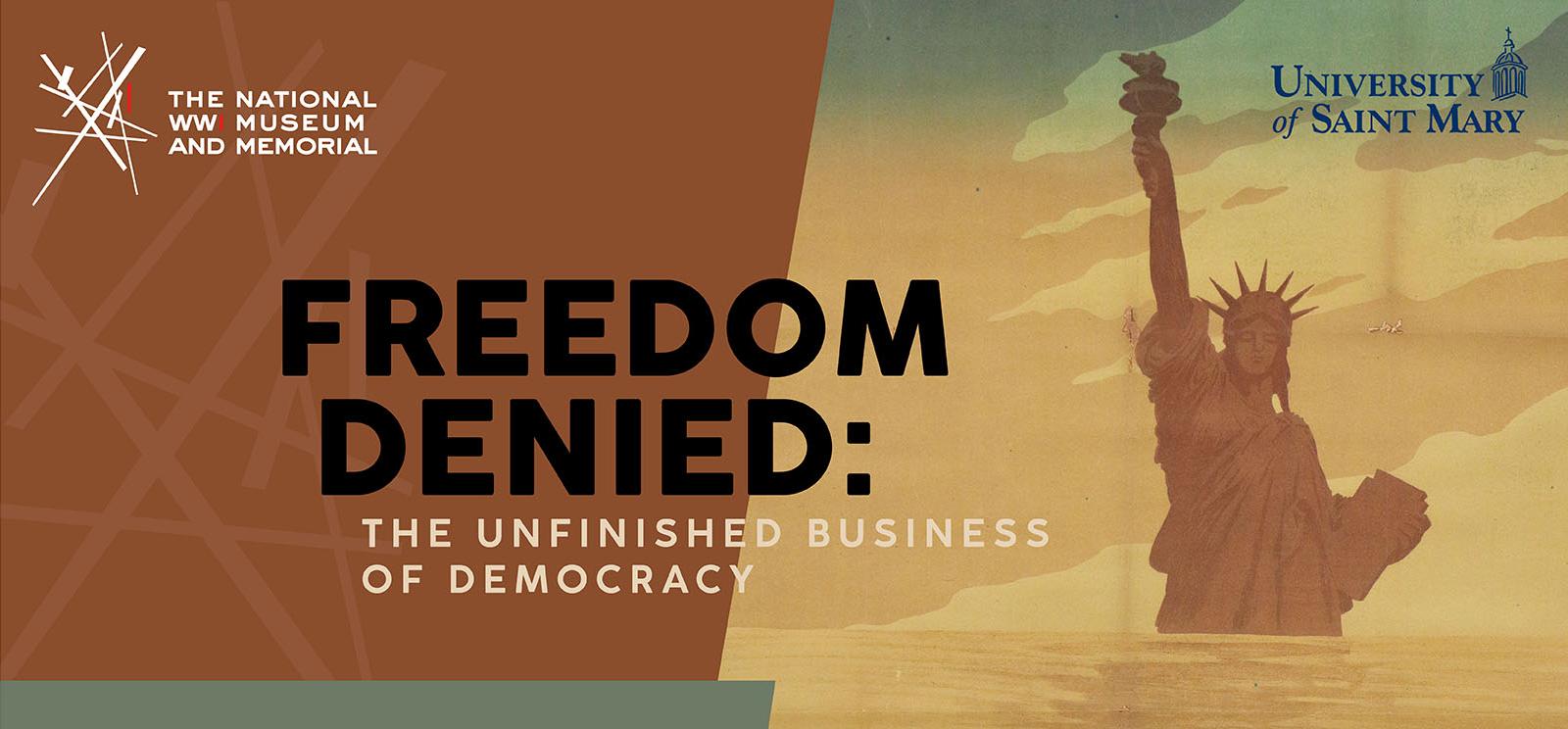
Freedom Denied: The Unfinished Business of Democracy
Abraham Lincoln and Woodrow Wilson are two presidents who led the United States in fighting for a united democracy in wars of unexpected magnitude and duration: a civil war with global impact, followed by a world war with national impact. Despite their shared goal, Lincoln and Wilson’s visions for democracy were vastly different, particularly through the lens of race. Amid colonization and segregation, freedom and self-determination remained unfulfilled promises, making peace – thought to have been successfully brokered – fragile and unstable at home and abroad.
Join Dr. Don Doyle and Dr. Thomas Knock, with moderator Dr. Marie Grace Brown, in conversation on the international implications of democracy’s unfinished business.
Free with RSVP | Auditorium and Online
About the Moderator: Marie Grace Brown, Associate Professor and Chair of History at the University of Kansas
Marie Grace Brown is a cultural historian of the modern Middle East, with expertise in topics of gender, nationalism, and empire. Her research has been supported by the American Association of University Women, the Social Science Research Council, and the Institute for Citizens & Scholars.
About the Panelist: Don Doyle, McCausland Professor of History Emeritus at the University of South Carolina
Don Doyle has written on a variety of subjects, most recently on the international history of the Civil War and Reconstruction Era. His book “The Cause of All Nations” reframed America’s Civil War as part of the larger history of the Atlantic world. Its sequel “The Age of Reconstruction: How Lincoln’s New Birth of Freedom Remade the World,” forthcoming from Princeton University Press in spring 2024, interprets the 1860s as a crucial decade in the history of democratic self-rule.
The experiment in popular government based on human equality, freedom, and self-rule was rare and endangered when Lincoln took office in 1861. After the Civil War, it appeared not only that America’s “Great Republic” had endured intact but also that it gave “the democracy” of Europe and Latin America a jolt of confidence and conviction. European empires retreated from the Western Hemisphere, and the Monroe Doctrine proclaimed “America for Americans!” Soon, slavery was in its death throes in the Spanish Caribbean and Brazil. A wave of democratic reforms and revolutions swept across Europe and led politicians to acclaim democracy as the wave of the future. W.E.B. DuBois reflected on the Civil War and Reconstruction in 1924: “It was the greatest and most important step toward world democracy of all men of all races ever taken in the modern world.” All that would change in the 1890s when the ascent of Anglo-Saxon supremacy and imperialist ideology in America marked the turn toward a dark journey for American democracy.
About the Panelist: Thomas Knock, Professor of History and Altshuler Distinguished Teaching Professor at Southern Methodist University
Thomas Knock’s principal works are “To End All Wars: Woodrow Wilson and the Quest for a New World Order” and “The Rise of a Prairie Statesman, The Life and Times of George McGovern.” Serving on the Editorial Board of Presidential Studies Quarterly and the Board of Trustees at the Woodrow Wilson Presidential Library, he is also co-author of “The Crisis of American Foreign Policy: Wilsonianism in the 21st Century” and the co-editor of “Jefferson, Lincoln, and Wilson: The American Dilemma of Race and Democracy.”
Woodrow Wilson is neither fondly remembered nor well understood by most Americans. Yet he occupies a secure position within the pantheon of great presidents. The progressive legislation he signed into law known as the “New Freedom” – to shield men, women, and children from the harsher consequences of the nation's industrial achievements – is still with us today. But the New Freedom had grievous limitations. The president who declared, “The world must be made safe for democracy,” expanded and formalized racial segregation in the federal workplace far beyond what it had been when he entered office. As for foreign policy—his most monumental legacy—no chief executive has ever communicated more effectively to the peoples of the world the ideals of democracy. Wilson’s Fourteen Points address was seminal in legitimizing the concept of national self-determination, especially in colonial areas where the Allies had major imperial interests. Even so, because of his difficulties in keeping faith with the Fourteen Points, disillusionment would fall heavily on Wilson’s admirers in the colonial world, for his brave words, as one of them put it, “have remained but brave words.”